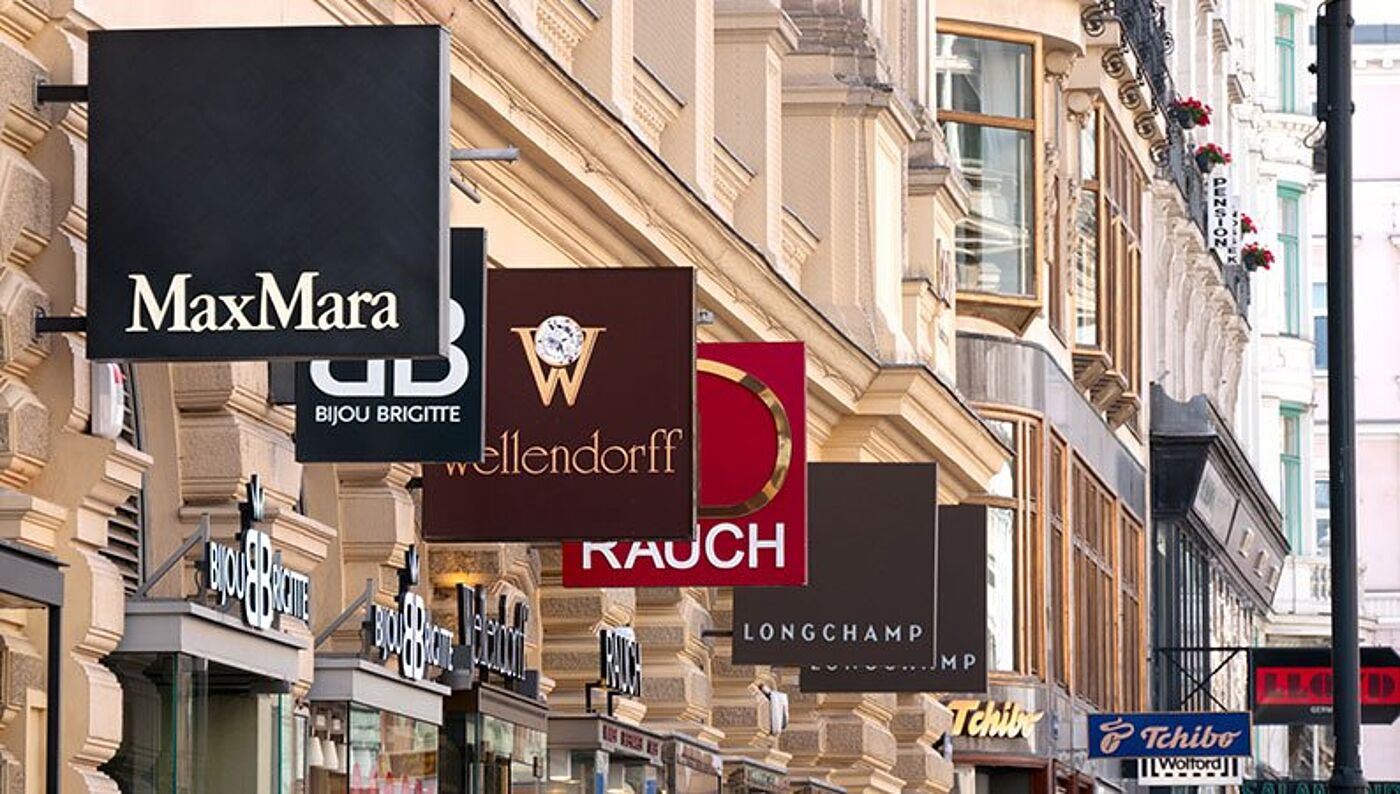
Novelties in the license area of the German Trademark Law
The Trademark Modernization Act ("Markenmodernisierungsgesetz") of December 11, 2018, which came into force on January 14, 2019, brings some changes in the area of German trademark licensing law.
A license is the contractual grant of a right to use the trademark. The license can be granted under the following conditions:
- On a temporary or permanent basis;
- For the whole of Germany or only for part of Germany;
- For all registered goods or services or only for part of the protected goods or services;
- Exclusively or not exclusively.
Under certain conditions, information on licenses can now be entered into the register of the German Patent and Trademark Office in accordance with the newly inserted Section 30 para 6 Trademarks Act ("Markengesetz"). Section 30 para 6 of the Trademarks Act was added due to the Directive (EU) 2015/2436 of the European Parliament and of the Council of 16 December 2015 on the harmonization of the trademark laws of the Member States.
According to Art. 25 para 5 of the Directive, Member States shall have procedures in place to allow for the recordal of licenses in their registers.
Article 25 Licensing:
- A trademark may be licensed for some or all of the goods or services for which it is registered and for the whole or part of the Member State concerned. A licence may be exclusive or non-exclusive.
- The proprietor of a trademark may invoke the rights conferred by that trade mark against a licensee who contravenes any provision in his licensing contract with regard to:
(a) its duration;
(b) the form covered by the registration in which the trade mark may be used;
(c) the scope of the goods or services for which the licence is granted;
(d) the territory in which the trade mark may be affixed; or
(e) the quality of the goods manufactured or of the services provided by the licensee - Without prejudice to the provisions of the licensing contract, the licensee may bring proceedings for infringement of a trade mark only if its proprietor consents thereto. However, the holder of an exclusive licence may bring such proceedings if the proprietor of the trade mark, after formal notice, does not himself bring infringement proceedings within an appropriate period.
- A licensee shall, for the purpose of obtaining compensation for damage suffered by him, be entitled to intervene in infringement proceedings brought by the proprietor of the EU trade mark.
- Member States shall have procedures in place to allow for the recordal of licences in their registers.
As from January 14, 2019 Section 30 Trademarks Act reads as follows:
Section 30:
- The right arising from the registration of a trade mark, the use of a trade mark or the fact of being a well-known mark may for all or for a part of the goods or services for which the trade mark enjoys protection form the subject-matter of exclusive or non-exclusive licences for the territory of the Federal Republic of Germany as a whole or part of this territory.
- The proprietor of a trade mark may assert the rights from the trade mark against a licensee who acts contrary to a provision of the licence agreement with regard to:
- the term of the licence,
- the manner in which the trade mark may be used, as covered by the registration,
- the nature of the goods or services for which the licence was issued,
- the territory in which the trade mark may be affixed, or
- the quality of the goods manufactured by them or of the services provided by them.
- The licensee may lodge an infringement action of a trade mark only with the consent of its proprietor. By way of derogation from the first sentence, the holder of an exclusive license may bring an action for infringement of a trade mark if, following a formal request, the trade mark proprietor has not himself brought an action for infringement of a trade mark within a reasonable period.
- A licensee may, for the purpose of claiming compensation for damage suffered by him, intervene in an infringement action brought by the proprietor of the trade mark.
- A transfer of rights in accordance with section 27 or the grant of a licence in accordance with subsection (1) shall not affect licences previously granted to third parties.
- The German Patent and Trademark Office shall, at the request of the proprietor of the mark or of the licensee, register the license if the consent of the other party is established. The same applies to the amendment of a registered license. The entry will be cancelled at the request of the owner of the mark or the licensee. The request for cancellation by the proprietor of the mark must be accompanied by evidence of the consent of the licensee or his legal successor designated at the time of registration.
The German Patent and Trademark Office shall, at the request of the proprietor of the mark or of the licensee, register the license if the consent of the other party is established. The same applies to the amendment of a registered license. The entry will be cancelled at the request of the owner of the mark or the licensee. The request for cancellation by the proprietor of the mark must be accompanied by evidence of the consent of the licensee or his legal successor designated at the time of registration.
New provisions of Section 30 para 3 sentence 2 and Section 30 para 6 Trademarks Act
Besides the newly incorporated provisions, the German Trademark Law already regulated everything else provided by the Directive in its Article 25. The principle that the licensee can file a lawsuit only with the consent of the trademark owner is maintained (Section 30 para 3 sentence 1 Trademarks Act). However, the licensee of an exclusive license may file a lawsuit without the express consent of the proprietor of the trademark, if the proprietor of the trademark does not bring a legal action within an appropriate period, after formal notice. Thus, the wording of Section 30 para 3 is now widely consistent with the provision of Article 25 para 3 of the EU Trademark Regulation.
Section 30 para 6 Trademarks Act provides for the registration, modification and cancellation of the license. The prerequisite for registration is that either the trademark owner / licensor or the licensee submits the application for registration and provides to the patent office at the same time evidence of the consent to the registration of the other party. The consent must be in writing, § 42c para 2 Trademark Regulation ("Markenverordnung").

Information about licenses, including the name, the legal form and the address of the domicile or registered office of the licensee, are entered in the register (§ 25 No. 34a Trademark Regulation). Information about licenses includes the type of license (exclusive or non-exclusive license), any restrictions, especially in the case of a limited term of the license. According to the guidelines for examination, (page 67), a precise indication of the goods or services to which the license relates is not entered on the register. The same applies to the territorial scope of the license (see Guidelines for examination). Here it is only stated that there is restriction; details of the scope of the license may be obtained by file inspection (see Guidelines for examination).
The modification or cancellation of a license registered pursuant to Section 30 para 6 Trademarks Act can be applied for in accordance with § 42c Trademarks Regulations.
Registration, modification and cancellation of a license in the register are subject to a fee. Pursuant to Section 2 para. 1 Patent Cost Act (Patentkostengesetz) combined with No. 333 500, 333 600 and 333 700 of the fee schedule, the fee is 50.00 Euro. Name and address changes of the licensee are not considered changes to the license. They are processed free of charge.
Non-binding declarations of availability
Another novelty within the framework of trademark licensing is the possibility to register a non-binding declaration of availability (§§ 42c, 25 No. 34B Trademark Regulation). The declaration of availability may relate to the licensing or sale of the mark. The declaration to the Deutsches Patent- und Markenamt (DPMA) must be in writing; it is registered free of charge (§ 42c para. 1 Trademark Regulation).
As long as an exclusive license is registered in the register or an application for the registration of an exclusive license is pending at the DPMA, the declaration of availability of a license as of right is inadmissible (§ 42c para. 2 Trademark Regulation).
The declarations according to § 42c para. 1 Trademark Regulation can be withdrawn at any time (§ 42c para. 2 Trademark Regulation). The declaration of availability of a license as of right according to Section 23 Patents Act ("Patentgesetz") is well known. The essential difference to the trademark law is that the submission of the declaration of availability of a license as of right for a trademark is non-binding. There is no reduction on the maintenance fees. Renewal fees for trademarks must always be paid in full. Therefore, the trademark declaration of availability of a license has more the character of the non-binding license interest statement that an applicant can give with the patent application. The statement that the applicant is interested in licensing is non-binding and does not oblige the patent applicant to license, but only informs potential licensees.
Withdrawal of the notification made under Rule 20bis(6)(a) of the Common Regulations under the Madrid Agreement and the Madrid Protocol
On August 8, 2019 Germany has withdrawn the notification made under Rule 20bis(6)(a) of the Common Regulations with immediate effect. Consequently, as from that date, the recording in the International Register of a license granted in respect of Germany relating to an international registration of a mark has the same effect as if it had been made directly in the national German trademark Register. (See Madrid Information Notice No. 55/2019).
For more information on registering trademark or patent license agreements or declarations of availability of licenses for patents / patent applications, please contact recordals@dennemeyer-law.com.
Filed in

A country and a supermarket continue their tussle over a trademark. Meanwhile, a study reveals the extent of academic patents in Europe and a publishing house tackles AI.



